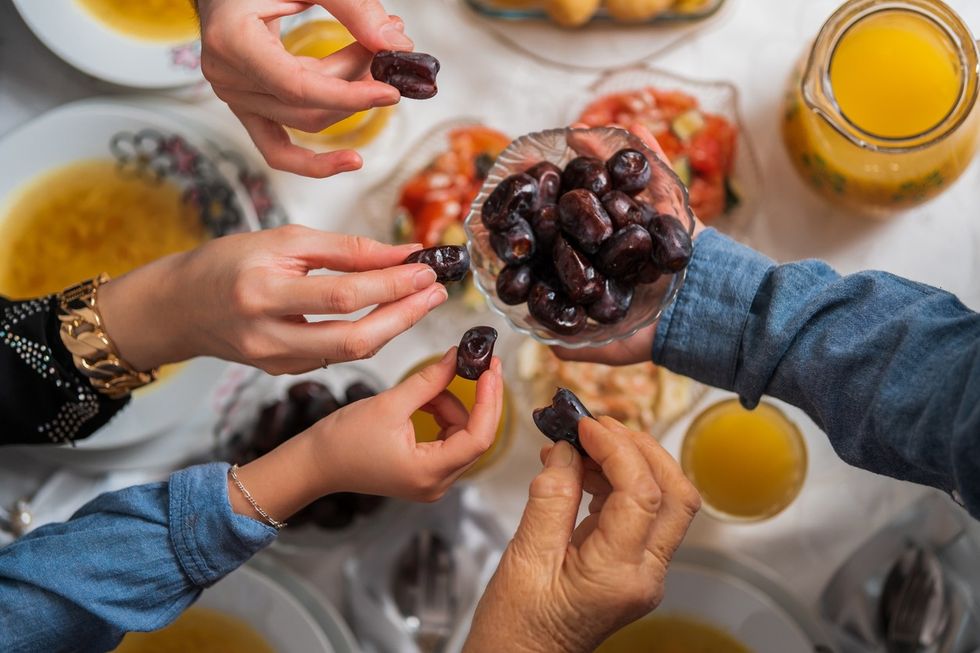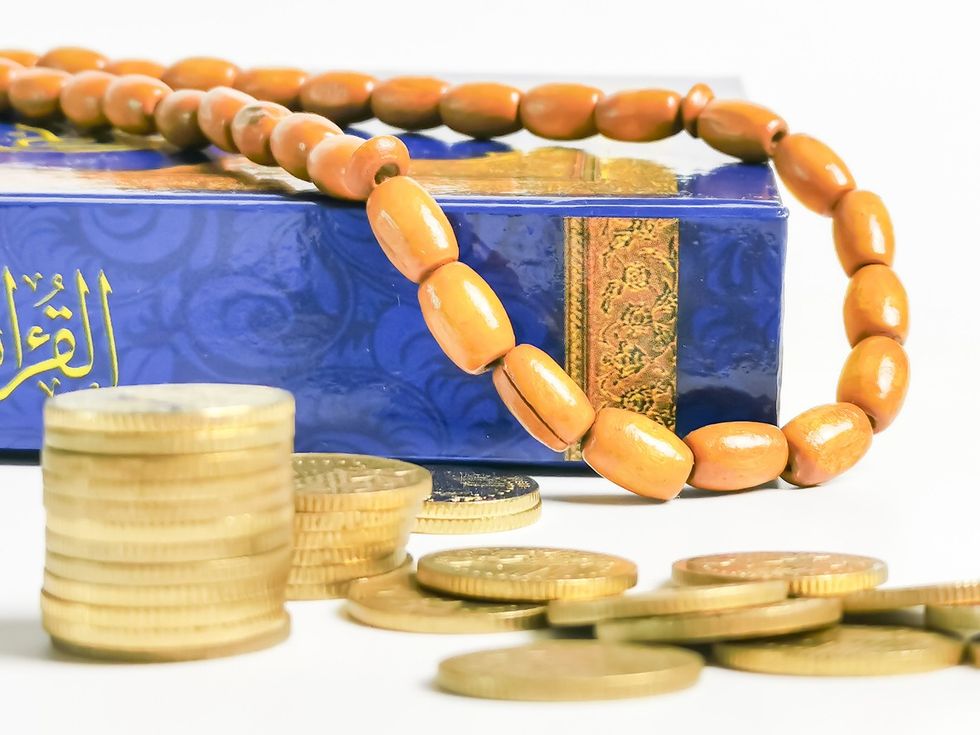WITH the rapidly rising cost of living, many people worry about managing expenses during Ramadan and Eid.
Ramadan is a time to refocus on faith, grati tude, and community, and mindful spending with an emphasis on simplicity can honour the spirit of the month without causing financial strain. By planning meals wisely, finding creative ways to give, and prioritising spirituality over ex travagance, you can make the most of a modest time of year while keeping its true essence alive.
With that in mind, Eastern Eye has put togeth er some useful tips to help navigate Ramadan and Eid without breaking the bank.
Ramadan
Planning: A major expense during Ramadan is food, with elaborate iftar spreads often planned for family and neighbours. Planning your weekly meals ahead of time will help prevent food waste and unnecessary grocery trips.
Bulk: Buying essentials like rice, lentils, and dates in bulk, along with preparing large portions and freezing meals, can save both time and money.
Simplicity: Ramadan is a time of modesty and re flection, so avoid extravagant iftars. Simple, nutri tious meals and wholesome dishes are cost-effec tive and align with the spirit of the holy month.
Home cooking: Instead of frequenting restau rants or ordering takeaways, cooking meals at home is much cheaper and often healthier. For those with limited cooking skills, there are plenty of recipes and tips available online. Instead of buying expensive juices and drinks, prepare tra ditional Ramadan beverages like tamarind juice or lemonade at home.
Smart shopping: Buying fresh produce that is in season and locally available is usually cheaper and healthier.
Repurpose leftovers: Transform iftar leftovers into suhoor meals to minimise waste and maxi mise savings.
Free events: Many mosques and online plat forms offer free Islamic talks and study circles.
Reflect: Instead of spending money on activities, take time to focus on prayer, reflection, and read ing the Quran. Creating a journal filled with grat itude and self-improvement ideas is another cost-effective way to spend your time.
Read: Instead of buying new books, consider borrowing from a library, swapping with friends, or accessing free online Islamic resources.
Family: Spend time away from electronic devices to focus on quality moments with family. Share stories, look at treasured photos, and collectively remember those who have passed away.
Gift time: Giving to charity is a key pillar of Ra madan, but it doesn’t always have to be financial. Volunteer at food banks, charity shops, or help elderly neighbours and assist at the mosque in some way.
Donate: If you can’t afford to give money, donat ing clothes, books, or household items can still make a positive impact. You can also collect old items from friends and neighbours to donate to worthy causes.
Share meals: Prepare extra food for those in need, such as the homeless, or join community iftars where everyone contributes a dish.
Fundraise: You can fundraise for worthy causes by selling baked goods or gathering friends to sponsor you in a meaningful way.
Eid
Decorations: Upcycle or reuse old decorations from previous years or other celebrations. You can even get children to handmake items like crescent moons and banners. Flowers and sim ple candles can also create a cost-effective and festive look.
Gratitude wall: Instead of buying new decora tions, encourage family and friends to write down what they’re grateful for and display it creatively.
Gifts: Handmade cards, baked goods, or per sonalised crafts make meaningful gifts. Re purpose or regift some thing useful or beauti ful that you no longer need. You can often find bargains on Face book Marketplace. Compile photos, messages, and shared memories into a memory book – a thoughtful and inexpensive present. Save decora tive paper and gift bags from previous celebra tions to reduce costs.
Outfits: Reuse older clothes instead of buying new ones. You can also do an outfit swap with a friend or family member. Alternatively, look for online discounts, mix and match existing pieces, or alter them to give a fresh look.
Celebration: Instead of dining out, host a simple gathering with loved ones featuring a home-coo ked meal and heartfelt conversations. You can al so encourage guests to bring a dish to share.
Activities: Host budget-friendly events like a games evening or movie night at home. Organ ise an evening of storytelling, recite meaningful poetry, or create a DIY photo booth with a fun Eid backdrop and take photographs with a phone. Local community centres, councils, and mosques often organise free or low-cost Eid events. You can also have everyone write down what they are grateful for and place it in a jar or box to open at a future Eid.






